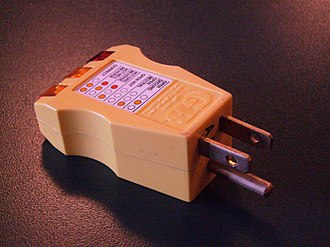notjustair
Well-known Member
It has been quite some time but I know this was discussed at some point. I have a stock tank heater that is putting volts into the water. I ran a 100 foot cord from the shed to this pen last year but it was just one boar so I used a heated bucket. The element doesn't touch the water. I never had any issues.
This year I have some feeder pigs in that pen. I threw in one of those 75 gallon recycled tire stock tanks and they have been using it all fall. I put in a brand new stock tank heater and it is shocking them. Not like electric fence level but enough to make them jump. I can tell you that the ground prong is part of it because when I unplugged the heater one came and drank. While he was drinking I plugged in just the ground prong into the cord and he got shocked. It isn't much, but I am getting residual from somewhere.
Do I test across the prongs of the tank heater or from the water to the ground? I thought it was odd when everyone was talking about it years ago, but I remember JD Seller saying something about driving in a ground rod next to each tank. Do I do that and then run the other end into the water?
What do I test to determine the fault and how do I fix it?
This year I have some feeder pigs in that pen. I threw in one of those 75 gallon recycled tire stock tanks and they have been using it all fall. I put in a brand new stock tank heater and it is shocking them. Not like electric fence level but enough to make them jump. I can tell you that the ground prong is part of it because when I unplugged the heater one came and drank. While he was drinking I plugged in just the ground prong into the cord and he got shocked. It isn't much, but I am getting residual from somewhere.
Do I test across the prongs of the tank heater or from the water to the ground? I thought it was odd when everyone was talking about it years ago, but I remember JD Seller saying something about driving in a ground rod next to each tank. Do I do that and then run the other end into the water?
What do I test to determine the fault and how do I fix it?


